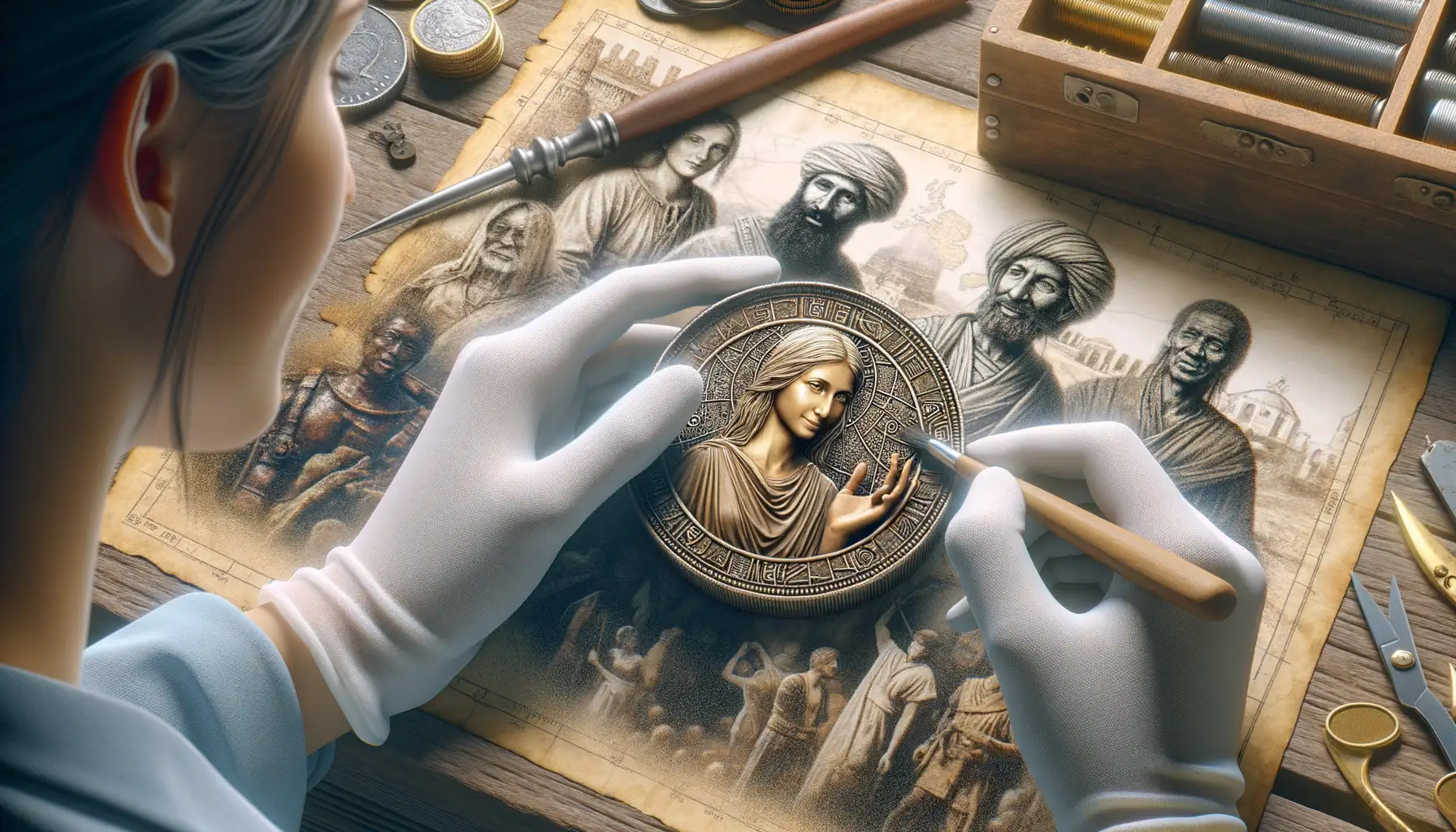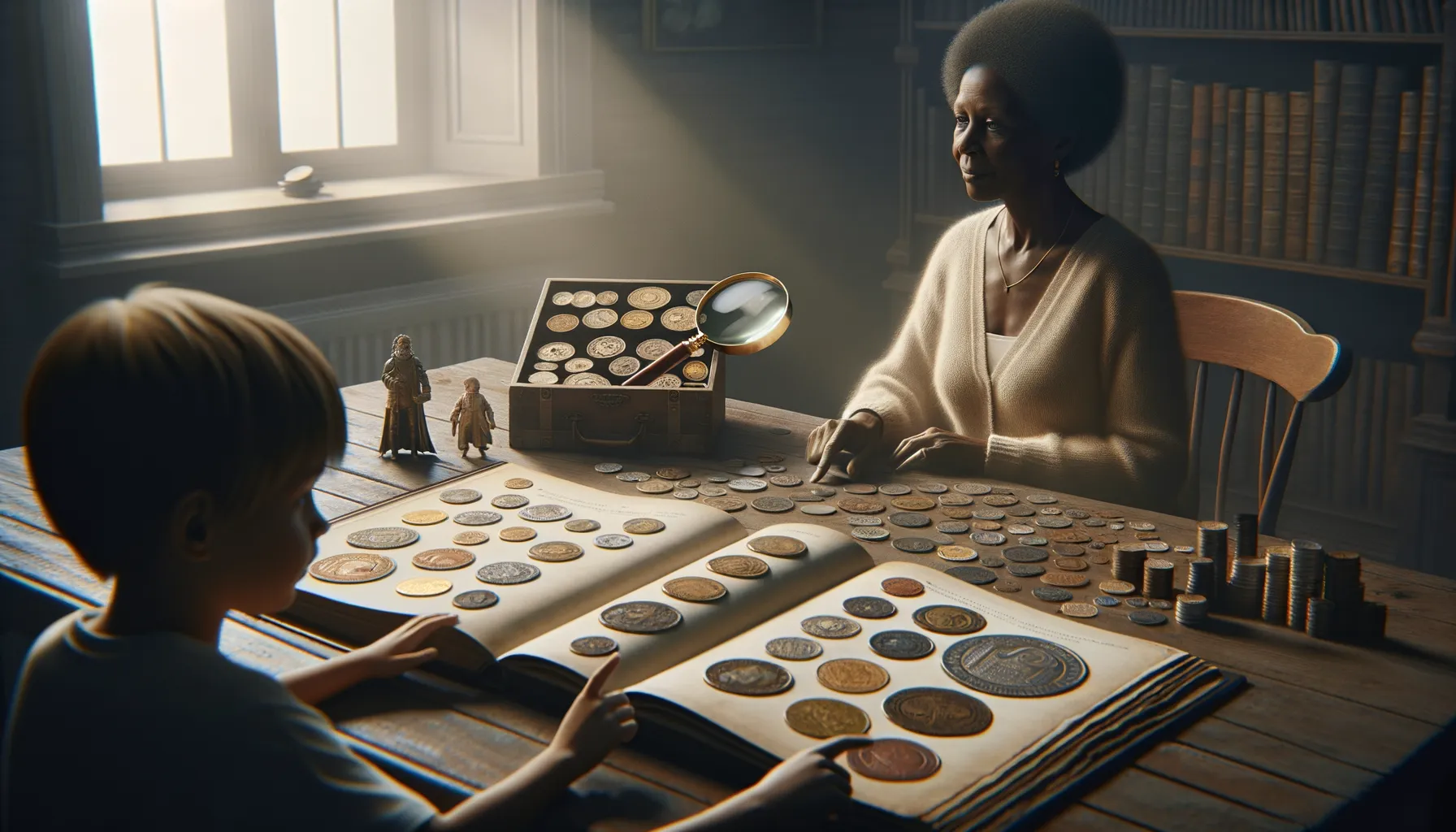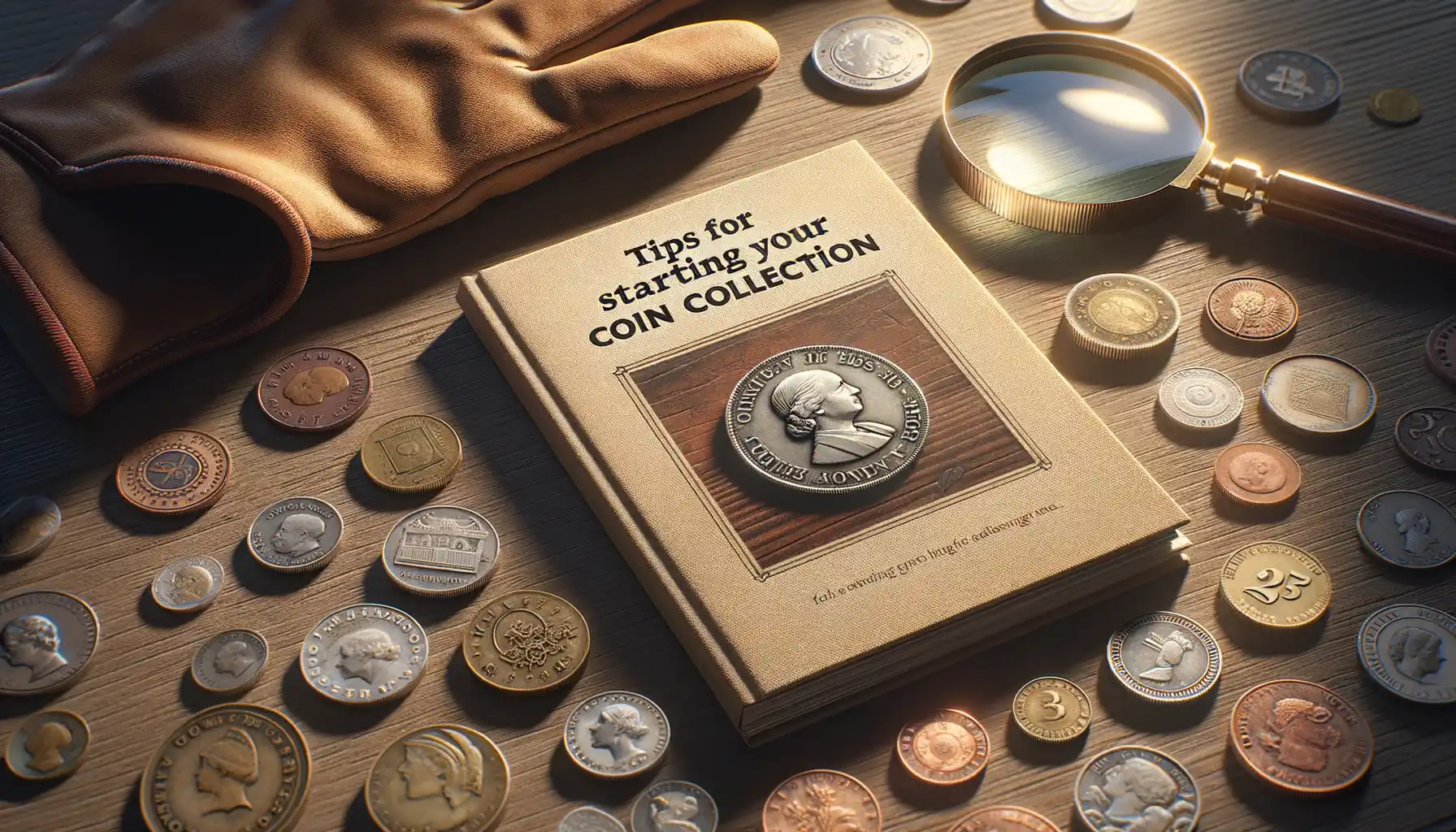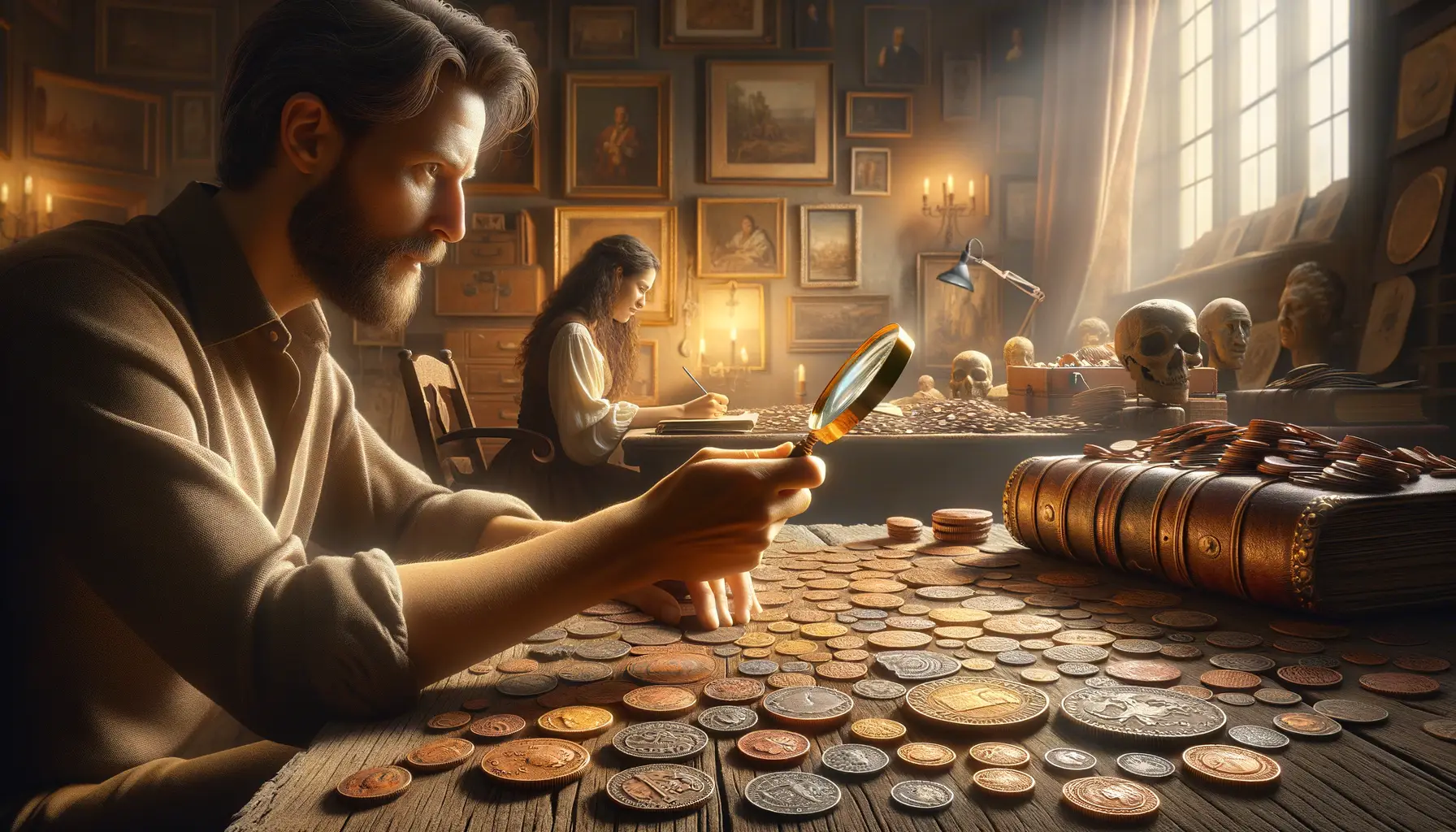The Historical Significance of Coins
Coins as Time Capsules of Culture
Imagine holding a coin minted during the reign of Julius Caesar or from the court of a medieval king. These tiny, metallic discs are so much more than currency—they’re miniature time capsules, brimming with secrets of their era. Every coin tells a story. The Roman denarius whispers of an empire’s ambition; an 18th-century Spanish doubloon hums with tales of ocean voyages and conquests.
But here’s the magic: coins don’t just carry monetary value. They’re snapshots of art, craftsmanship, and political power. Think of the intricate designs etched into ancient Greek coins—the detailed profiles of gods, heroes, and rulers that rival even modern sculptures. In many ways, coins were the world’s first mass media. Leaders used them not only for trade but as propaganda, stamping their faces and symbols onto history itself.
- Materials: Coins reflect the resources and technology of their time—precious metals like gold and silver or utilitarian copper and bronze.
- Inscriptions: Languages, dates, and mottos provide glimpses into political priorities and cultural pride.
In your hands lies a relic once exchanged in bustling markets, slipped into pockets, or buried for safekeeping. It’s history, made tangible.
How Coins Connect Us to the Past

Coins as Time Travelers in Your Pocket
Ever held a coin from centuries ago and wondered, “What stories could this little treasure tell?” Coins are like miniature time capsules, whispering secrets of empires long gone, political upheavals, and everyday life. Each one is a tangible connection to the hands of people who lived, loved, and fought for survival.
Take a Roman denarius from 200 AD. That small silver disc might have paid for a soldier’s meal or been clutched tightly by a merchant on Rome’s bustling streets. Or consider an American penny minted during the Civil War—imagine it sitting in the pocket of someone grappling with the turmoil of a divided nation. It’s more than just currency; it’s a piece of their story.
What Coins Reveal About Ancient Lives
Coins don’t just reflect wealth—they’re rich with meaning. Here’s what they can tell you:
- Faces of rulers: From Cleopatra to Napoleon, coins immortalize leaders and their ambitions.
- Symbols of culture: Look closer to find hints of religion, technology, or even art trends of the time.
- Trade routes: Foreign coins found in strange places reveal how goods (and ideas) once traveled the globe.
Holding these relics in your hand is like shaking hands with history itself.
The Educational Value of Coin Collecting

Unlocking Stories Through Coins
Imagine holding a coin from Ancient Rome. It’s not just metal—it’s a relic, a storyteller. With a single coin, you can uncover the wealth of an emperor, the triumphs of a nation, or even cultural revolutions. Collecting coins is like assembling a treasure chest full of untold history lessons. Each piece teaches something new: geography, art, economics, even language! Did you know that some early U.S. coins had misspellings? It’s a quirky way to see how people lived back then—mistakes and all.
The Skills Coin Collecting Can Teach
Coin collecting isn’t just about the past; it sharpens your present-day skills.
- Critical thinking: Why was this coin minted? What event made it special?
- Research: You’ll find yourself digging into old texts, online archives, and even talking to passionate experts.
- Attention to detail: Spotting imperfections or unique details on a coin is a skill that trains keen eyes.
From enriching your vocabulary through Latin inscriptions to mapping trade routes based on where coins circulated, the hobby goes far beyond simple collecting—it’s an ongoing education.
Tips for Starting Your Coin Collection

Getting Your First Coins: Where to Begin?
Starting a coin collection is like opening a portal to the past—one coin at a time. But where should you begin? Fear not, every great collector starts somewhere, and your journey should be as unique as the coins you’ll collect!
First, consider your interests. Are you fascinated by ancient empires? Or do you swoon over modern commemorative coins? Narrowing down your focus makes collecting less overwhelming—and way more exciting. For instance, you might start with coins from specific periods like the Roman Empire or World War II.
Next, think small (literally). Scour your pocket change! Believe it or not, treasures can hide in plain sight. A rare minting year, an unusual design, or even a beautifully preserved penny could spark your obsession.
Ready to dig deeper? Check out local flea markets, antique shops, or even specialized coin dealers. Don’t overlook online marketplaces either—they often feature hidden gems.
- Download a coin guide app or grab a reference book to identify your finds.
- Get an album or display case to protect your collection—it’s like giving them royal treatment!
Remember: Each coin tells a story, and those stories are waiting for you to uncover them. Happy collecting!
The Joy of Preserving History Through Coins

Making History Tangible, One Coin at a Time
Have you ever held a piece of history between your fingertips? Coins are so much more than bits of metal—they’re storytellers in disguise. That worn Roman denarius you stumbled upon at a flea market? It once jingled in a soldier’s pouch as he marched across ancient Europe. A simple penny from 1889? It might have been someone’s last coin during hard times. Every scratch, every faded engraving whispers tales from lives long past.
By collecting coins, you’re not just amassing treasure; you’re curating a personal museum. Imagine showing your collection to a friend, watching their eyes widen as they learn about the sun god Helios on a Rhodian tetradrachm or the recovering economy symbolized by a U.S. Wheat Cent during the Great Depression. This hobby lets you step into the shoes of emperors, farmers, and explorers alike.
- Coins tell us who ruled when—with portraits of kings and queens.
- They showcase art trends: flowing Grecian patterns or simple colonial design.
- They mark turning points: wars, revolutions, or even the rise of a new nation.
Coin collecting isn’t just saving objects; it’s cradling stories and keeping them alive for generations yet to come.